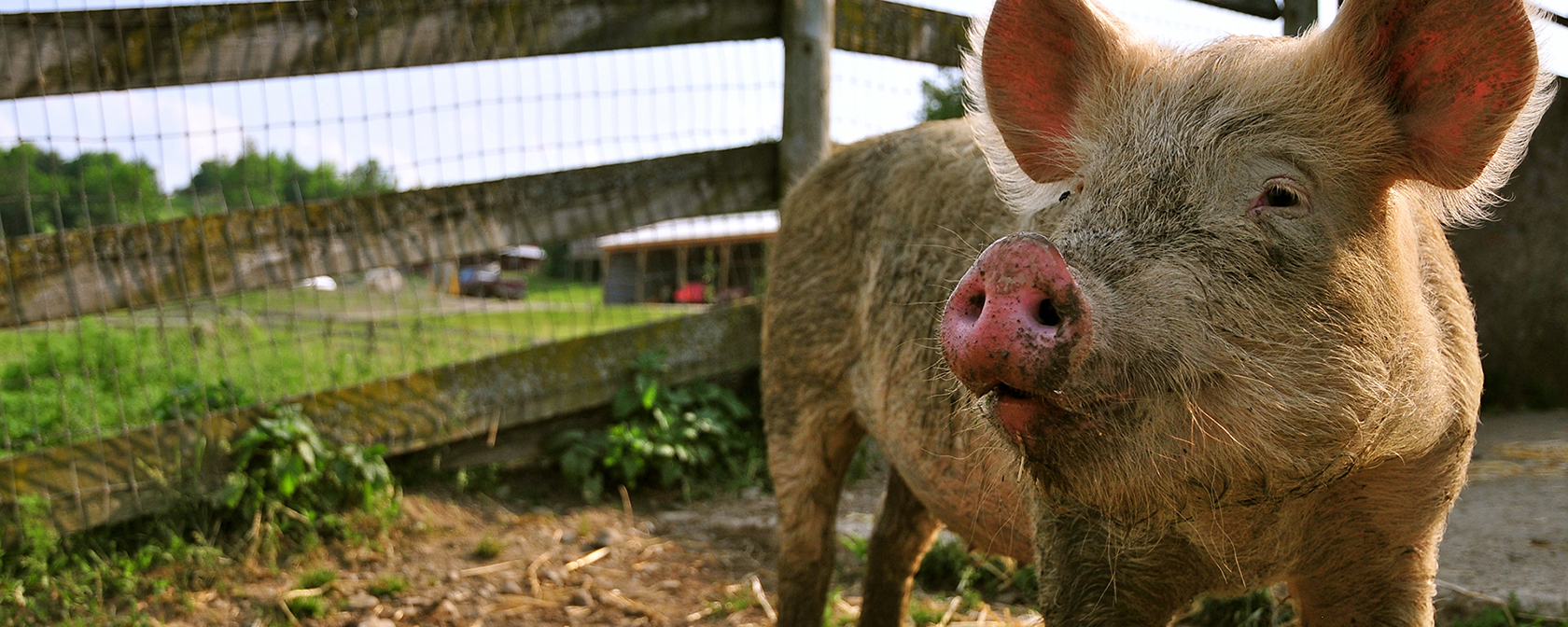By Sara Amundson and Kitty Block
Inscribing the humane treatment of animals into our laws takes years, and so we are heartened by some key measures at the state level taking effect in 2024, which are the result of so much rallying and advocacy, and which will contribute to shaping the humane world we envision.
As of Jan. 1, 2024, California’s Proposition 12, widely considered the world’s strongest law for the protection of farm animals, now enjoys full implementation. This comes after the expiration of a six-month extension that permitted the sale of any remaining noncompliant pork products already in California’s stream of commerce. The law is a win against the practice of extreme confinement of farmed animals, requiring that mother pigs, hens used for eggs and calves raised for veal in California be given at least enough space to stand up, turn around and extend their limbs. The law also bans the in-state sale of pork, eggs and veal produced via extreme confinement. Approved by voters in California with 63% voting in favor in 2018, Proposition 12 has already had a massive effect on safer and more humane products sold in the state.
In more good news for farm animals, it is now illegal to produce or sell eggs from caged hens in Oregon, Washington and Nevada, thanks to the cage-free laws for which we so ardently advocated. And New Jersey’s prohibition on gestation crates is expected to take effect this year, too.
The prevention of animal suffering through state laws taking effect in 2024 doesn’t stop there.
We’ve advocated for the passage of laws to promote alternatives to animal testing in myriad ways:
- Oregon’s prohibition on the sale of cosmetics that have been newly tested on animals went into effect on Jan. 1. In addition, a new law requires the Oregon Health and Science University to annually publish information about its use of primates in research on its website.
- A new update to an existing law in California mandates the use of non-animal alternative test methods for certain products including pesticides, industrial chemicals and food additives when they are approved for use by the appropriate regulating agency. The updated language for the mandate went into effect on Jan. 1.
- In Maryland, a first-of-its-kind law requires animal research facilities in the state to pay into a Human Relevant Research Fund annually, which will provide grants to scientists in the state working to develop non-animal methods. Research facilities are expected to pay into the fund for the first time on Jan. 15, 2024.
- We look forward to the impact of two bills soon going into effect in Michigan. Collectively known as “Teddy’s Law,” named after a beagle adopted after his release from a testing facility in 2019 and going into effect Feb. 13 this year, it makes Michigan the 16th state to ensure dogs and cats used in research facilities are given the opportunity to be adopted after their time in research has ended.
In 2024, companion animals too will enjoy the protections of several laws set to take effect during the year:
- Upgrades to Pennsylvania’s Dog Law go into effect in January and will fund enforcement of the state’s puppy mill law, require pet stores to post health and breeder information for puppies, and increase transparency in puppy advertising.
- The prohibition on the sale of dogs, cats and rabbits in New York pet stores goes into effect in December 2024. This will stop about 50 pet stores from selling puppy mill puppies.
Wildlife protection will see its share of benefits this year, too. As of Jan. 1, Illinois implemented a law that prohibits public contact with bears and nonhuman primates. A ban on cruel wildlife killing contests by the Oregon Fish and Wildlife Commission is now in effect, and a New York law outlawing wildlife killing contests will become effective later this year on Nov. 1. Both of these crucial measures will save the lives of thousands of coyotes, foxes, bobcats and other native wild animals.
As we celebrate the laws taking effect in 2024, statehouses across the nation are opening their legislative sessions. We will be advocating for many bills that could contribute to a more humane future.
We’ve said this before, and we will say it again: None of this progress would have been possible without the steadfast support of people who care about animals. Whether you donated to a cause sent a letter to your representatives or shared a petition with your friends and family, you are the backbone of our movement. We look forward to more wins for animals, and we are confident we’ll achieve them together in the coming years.
Kitty Block is CEO of the Humane Society of the United States.




